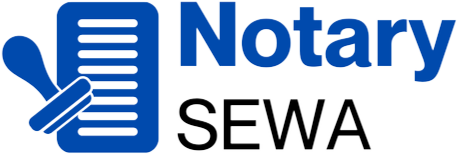
Introduction
In an increasingly globalized world, verifying the authenticity of documents is crucial for international transactions, legal matters, and business dealings. Apostille certification simplifies this process, ensuring that documents issued in one country are recognized as valid in another. This guide provides an in-depth understanding of the apostille process, its benefits, and how Nepalese citizens can obtain apostille certification.
What is Apostille Certification?
Apostille certification is a method of authenticating documents for use in countries that are part of the Hague Convention of 1961. It eliminates the need for further legalization, making it easier for documents to be accepted internationally.
Key Features of Apostille Certification
- Confirms the authenticity of the document’s signature and seal.
- Issued by a designated government authority.
- Recognized by over 120 Hague Convention member countries.
- Simplifies the legalization process by eliminating embassy authentication.
Documents That Require Apostille Certification
Apostille certification is essential for various document types, including:
- Personal Documents: Birth certificates, marriage certificates, death certificates, divorce decrees.
- Educational Documents: Degrees, diplomas, transcripts, and academic certificates.
- Business Documents: Articles of incorporation, commercial agreements, trademarks, and contracts.
- Legal Documents: Affidavits, powers of attorney, court rulings, and notarized documents.
For details on document notarization, visit Notary Sewa.
The Apostille Process in Nepal
Step 1: Document Verification
- Ensure the document is issued by an authorized body (e.g., government agencies, educational institutions, notaries).
- If required, get the document notarized before submission.
Step 2: Submission to the Ministry of Foreign Affairs (MOFA)
- Submit the verified document to the Ministry of Foreign Affairs (MOFA) of Nepal for authentication.
- MOFA confirms the document’s legitimacy before issuing the apostille.
Step 3: Issuance of Apostille Certificate
- Once verified, the apostille certificate is attached to the document, making it legally valid in all Hague Convention countries.
For more information, visit MOFA Attestation Services.
Benefits of Apostille Certification
Apostille certification offers several advantages for individuals and businesses:
International Acceptance
- Apostilled documents are recognized in over 120 countries, eliminating the need for further authentication.
- This facilitates smooth transactions for visa applications, employment, education, and business activities abroad.
Prevention of Document Fraud
- The apostille process verifies the authenticity of official documents, reducing the risk of forgery and fraudulent claims.
- Learn more about how apostille certification protects against fraud here.
Time and Cost Efficiency
- Apostille certification streamlines document authentication, saving time and reducing costs compared to embassy legalization.
- Ideal for students, expatriates, and business professionals needing quick processing.
Legal and Business Security
- Apostilled documents provide legal assurance in international transactions, preventing disputes related to document authenticity.
- Essential for companies expanding globally, signing international contracts, and securing foreign investments.
Common Challenges and How to Overcome Them
Lack of Awareness About Apostille Certification
- Many individuals are unaware of the apostille process and its necessity for international document validation.
- Solution: Consult trusted legal service providers like Notary Sewa for guidance.
Document Rejection Due to Errors
- Incorrect or incomplete documents may lead to rejection.
- Solution: Verify requirements with MOFA and ensure documents are properly notarized before submission.
Apostille Not Accepted in Non-Hague Countries
- Some countries do not recognize apostille certification.
- Solution: Opt for embassy legalization for countries outside the Hague Convention.
Apostille vs. Notarization vs. Legalization
Understanding the differences between these processes is essential:
Apostille is used for international validation. It is issued by MOFA and recognized in Hague Convention countries. It simplifies the document authentication process by eliminating the need for embassy legalization.
Notarization verifies the authenticity of a signature on a document. It is performed by a notary public and is generally valid for domestic use only. Notarization does not grant international recognition unless further steps, such as legalization or apostille, are completed.
Legalization is an additional certification required for countries that are not part of the Hague Convention. This process involves authentication by multiple authorities, including embassies or consulates, to validate the document for international use in non-Hague Convention countries.
For more insights, visit Apostille vs. Notarization.
Who Needs Apostille Certification?
Apostille certification is beneficial for:
- Students applying for universities abroad.
- Job seekers needing employment verification for international jobs.
- Businesses engaging in global contracts and trade.
- Legal professionals handling cross-border legal documentation.
For additional legal services, visit Notary Sewa Services.
Real-Life Example: How Apostille Helps Nepalese Citizens
A Nepalese entrepreneur expanding their business to Europe needed to authenticate company registration and trade licenses. Through apostille certification, their documents were quickly validated, allowing them to sign agreements and operate legally in multiple countries without extra embassy verification.
This case highlights how apostille certification saves time and ensures smooth international operations.
Conclusion
Apostille certification is a crucial process for verifying document authenticity and ensuring global recognition. It benefits students, professionals, businesses, and legal practitioners seeking international opportunities. Understanding the process and obtaining apostille certification can save time, prevent fraud, and provide legal security.
Need hassle-free apostille services in Nepal? Contact Notary Sewa today for expert assistance.
